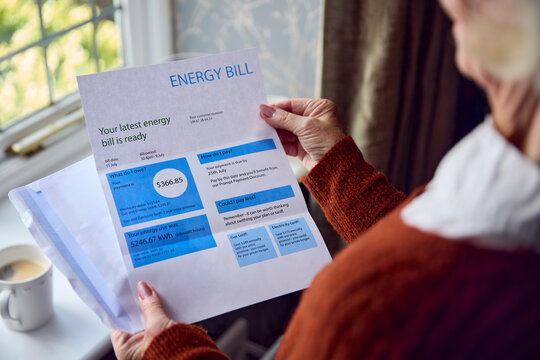Millions of UK households could face higher bills this autumn if they fail to submit an energy meter reading before 1 October, when the latest Ofgem price cap comes into force.
More than seven million homes on standard tariffs are being urged by Free Price Compare to act quickly. Those without a smart meter who do not provide up-to-date readings risk having September usage charged at October’s higher unit rates, costing families more than necessary.
Why meter readings matter
From 1 October, the energy price cap will rise by 2%, taking the typical annual dual fuel bill to £1,755. That is about £35 more a year for a standard household.
While the increase may appear modest, the difference for just a week’s energy could be £17 per home. If millions of households do not submit meter readings, the total overpayment could reach well over £100 million.
Households without smart meters rely on manual readings to keep their bills accurate. A fifth of these homes have not submitted a reading in three months, while some have gone more than a year. Without updated figures, suppliers bill customers on estimates, often leaving families overpaying.
Dual fuel customers most exposed
The structure of dual fuel tariffs UK means gas and electricity are billed together. Any inaccuracy in readings can therefore push overall costs up sharply.
Submitting a reading before the price cap date ensures September’s lower rates apply to the energy already used. This simple step can prevent households from being billed entirely at October’s higher prices.
Standing charges add extra pressure
Households also face rising standing charges. These fixed daily fees currently cost about £196 for electricity and £124 for gas, adding more than £300 a year before a single unit is consumed. Ofgem has confirmed they will increase again in the final quarter of 2025.
Combined with mounting arrears – average household debt now stands at £1,716 – the pressure on budgets is growing. For families already stretched, avoiding unnecessary overpayments is vital.
Why shopping around matters again
The price cap sets limits, but it does not guarantee the cheapest deal. Wholesale costs remain about 75% higher than before the crisis, so even modest savings matter.
Experts at Free Price Compare recommend reviewing the market, as fixed tariffs have returned. Some now undercut the October cap by more than £200 a year. Providers offering green dual fuel deals also give families the option of lowering costs while supporting renewable energy.
Switching suppliers to save more
After years of limited competition, households finally have a wider choice of tariffs. By choosing to switch energy supplier, families can secure fairer prices and avoid being stuck on expensive default rates.
Regional variation means the lowest tariff in one part of the country may not be the same elsewhere. Regularly comparing options ensures households do not miss out on savings.
Prepayment customers at higher risk
Households on prepayment meters are often charged more than those paying by direct debit. They also face higher standing charges and a greater chance of falling into arrears or disconnection.
Checking for competitive prepayment tariffs before winter is essential, as these customers are statistically more likely to struggle with affordability.
What to do before 1 October
With the price cap rising and further increases expected next year, Free Price Compare advises three simple steps:
- Submit a meter reading before 1 October if you don’t have a smart meter
- Check for better deals, including dual fuel tariffs UK that combine gas and electricity
- Explore green dual fuel deals and be ready to switch energy supplier if cheaper tariffs are available
The bottom line
Failing to provide a meter reading before the price cap change could leave households overpaying for energy they used at September’s lower rates. With standing charges climbing and household debt already at record levels, the pressure on budgets is intensifying.
Free Price Compare advises that by taking meter readings, reviewing tariffs, and switching where better deals exist, households can avoid paying more than they should this winter.


